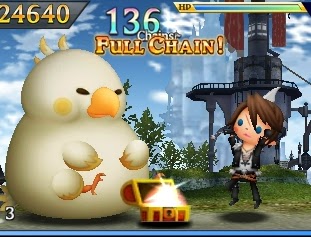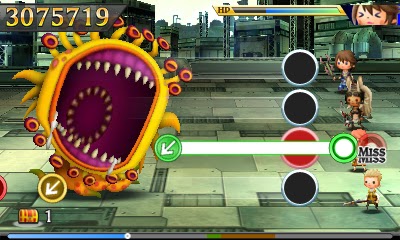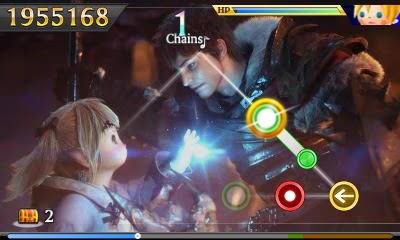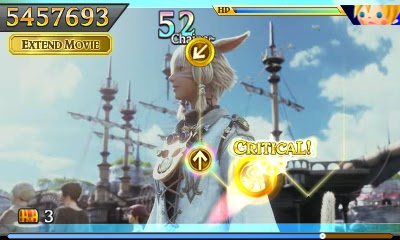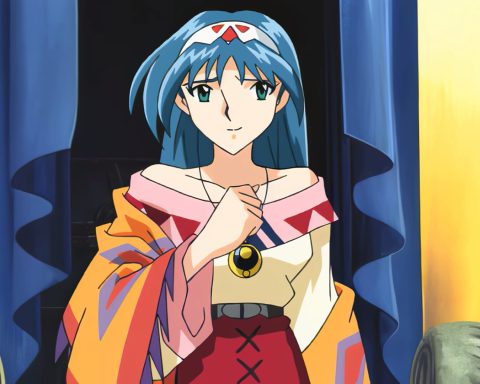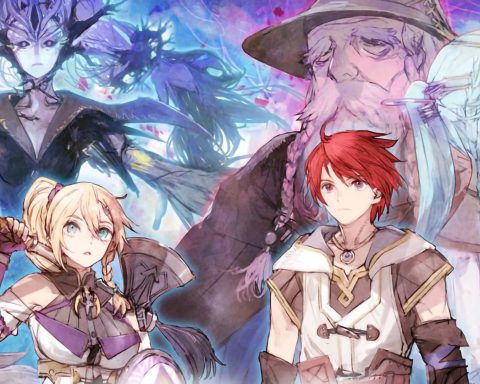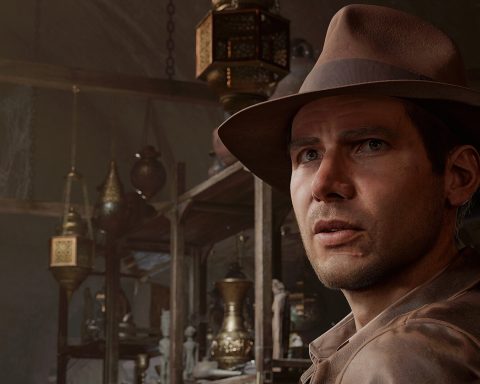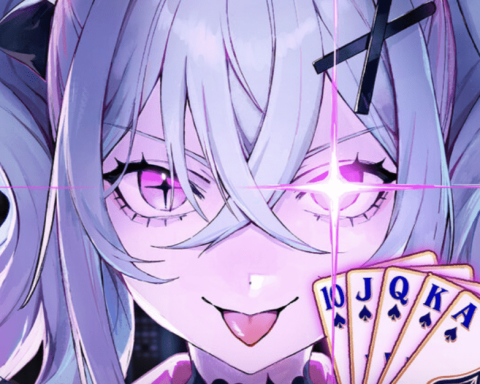Review by Matt S.
Whoever thought up the concept of the original Theatrhythm Final Fantasy was a genius. With music being one of the strengths of the Final Fantasy franchise that has remained consistent throughout its history, even as people have waxed and waned about the entertainment value of individual games, focusing a game entirely on the music was always going to be a recipe for success.
The original Theatrhythm Final Fantasy was indeed a success. With a couple of dozen music tracks pulled from the entire history of the franchise it was fan service in the highest regard. It helped that the rhythm gameplay built around that music was competent, of course, but never did the game let you forget that you were there for the music first, and the game second.
Curtain Call, the ‘sequel,’ as such, to the original Theathrythm Final Fantasy also knows where the game’s strengths lie. Rather than try and fix up the gameplay issues that the first game exhibited, Curtain Call instead focuses on overloading players with the fan service and offering much, much more music. It was the right decision, as it turns out, because this is surely the game of every Final Fantasy veteran’s dreams.
There are about 220 songs packed into the game itself, with planned DLC to extend that whopper of a playlist even further. That’s correct, 220. Tracks are taken from games that range right from the original Final Fantasy through to the last numbered release: Final Fantasy XIV: A Realm Reborn. In addition, there are more than a few off-shoot Final Fantasy games included in the collection. There’s the two Dissidia games, Type-0, and even the more obscure likes of Mystic Quest and Crystal Chronicles. Despite the range it’s inevitable that fans are going to gripe that at least one of their pet favourite games is not included in the play list (for me I am fuming that Final Fantasy Fables: Chocobo Dungeon’s awesome soundtrack isn’t in there), but regardless Square Enix has done a brilliant job in representing the heritage and history of Final Fantasy’s music.
As you’re playing it’s difficult not to be impressed with how many different genres of music have been melded into the Final Fantasy franchise so effectively. There’s pop ballads like Suteki Da Ne, and then the hard rock theme of the boss fight with Titan from Final Fantasy XIV. There’s plenty of chiptune music from the early days of the franchise, a beautiful waltz from Final Fantasy VIII, and of course the operatic One Winged Angel from Final Fantasy VII. Depending on your personal taste in music, you’re not going to like every single song that is represented in this game, but chances are you’re going to appreciate just how effective the series has always been in using music to accompany key moments or themes within the games. And there are songs in there that you are going to replay over and over again simply because you love the song that much. This is a guarantee.
The gameplay itself is very basic. Little dots will fly across the screen and you’ll need to do a combination of taps, swipes and tap-and-holds on the touch screen in time with the music. After developing what I can only describe as legendary dexterity so I could beat some of the Extreme levels in Hatsune Miku: Project Diva F, I found Curtain Call’s difficulty quite pedestrian, though some of the levels on ‘Hard’ will challenge almost anyone who hasn’t given their hand a permanent cramp from playing with Miku too much.
For returning players who played the original Theatrhythm to death there is a new adventure mode of sorts that has been added to this game to give you something new to look at. As with the original you’ll pick a party of four heroes (also drawn from the entire history of Final Fantasy), and they will be your ‘health’ bar and dole out the damage to any enemies you meet. They’ll take damage if you miss the timing of a tap or swipe entirely, and do damage based on their statistics if you perform well. As you complete music tracks, these characters earn experience and can level up, which improves their statistics. Now, in the adventure mode the goal is to complete a number of different music tracks on the way to a final boss battle. You’ll have a choice of direction to take, with some directions offering up shortcuts, others offering keys to unlock doors, and still others providing save spots. Picking the right path through an adventure is basic stuff, but it’s a nice distraction and adds a much-needed dash of variety to the music gameplay.
Sadly the system never does enough with the RPG elements. Along the way you’ll pick up loot and potions and magic scrolls, but you’ll never need to equip them since getting the best score on any level and defeating enemies is simply a matter of not missing any notes. All of those RPG elements are instantly relegated to fan service that has no impact on the gameplay. But they do give the game a nice sense of Final Fantasy authenticity, so it’s easy enough to forgive.
Even if it is disappointing that all that experience grinding and item looting serves no genuine purpose, it’s hard to stay mad at a game that is so adorable as Curtain Call. Utilising the same bright, cheerful visual style as its predecessor, Curtain Call features an abundance of giant heads and puppet-style animations. It’s simple, and its a beautiful accompaniment to the music… even if you’ll spend most of your time playing the game razor-focused on the dots flying around, and not what the characters are doing in the background.
The ultimate concern with any rhythm game is whether the actions that the game is asking players to take (swipes, taps and so on) reflect the movement and mood of the music. Theatrhythm Final Fantasy: Curtain Call nails this, and makes for a music game that is both fun and rewarding. Especially for the Final Fantasy fans out there.
– Matt S.
Editor-in-Chief
Find me on Twitter: @digitallydownld

